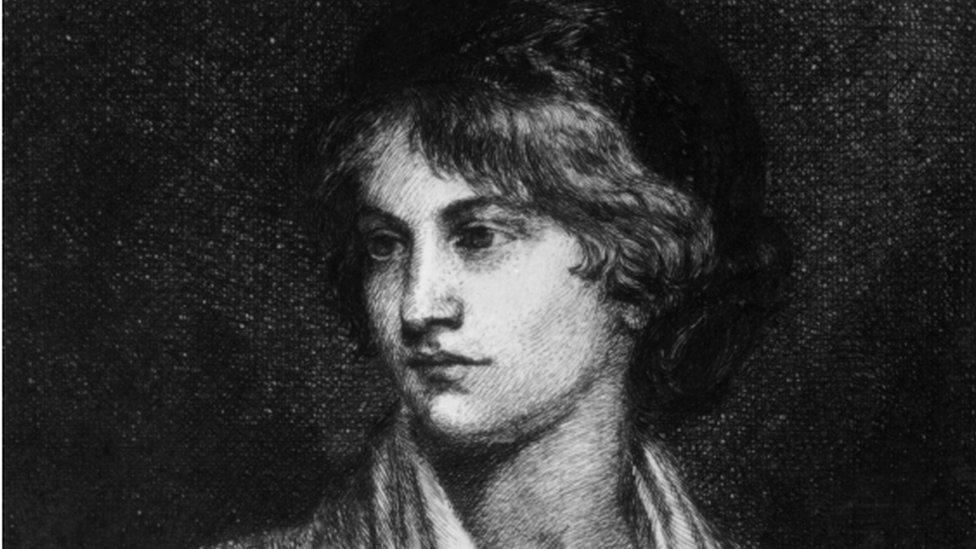Political heroes: Nicola Sturgeon on Winnie Ewing
- Published
Nicola Sturgeon: Winnie is the best street campaigner I've ever seen
First Minister Nicola Sturgeon's political heroine will not raise many eyebrows in her native Scotland but she is less well known in other parts of the UK.
Winnie Margaret Ewing (nee Woodburn) was born in Glasgow in 1929.
Her father was a successful small businessman who backed the Independent Labour Party but while training to become a lawyer at Glasgow University, the young Winnie would commit herself to the Scottish National Party.
"She was somebody who changed the course of Scottish political history... and who helped define the Scottish independence movement as the outward-looking inclusive one that we are today," said Ms Sturgeon.
In 1967 Winnie Ewing shook the political establishment when, against the odds, she won the Hamilton by-election.
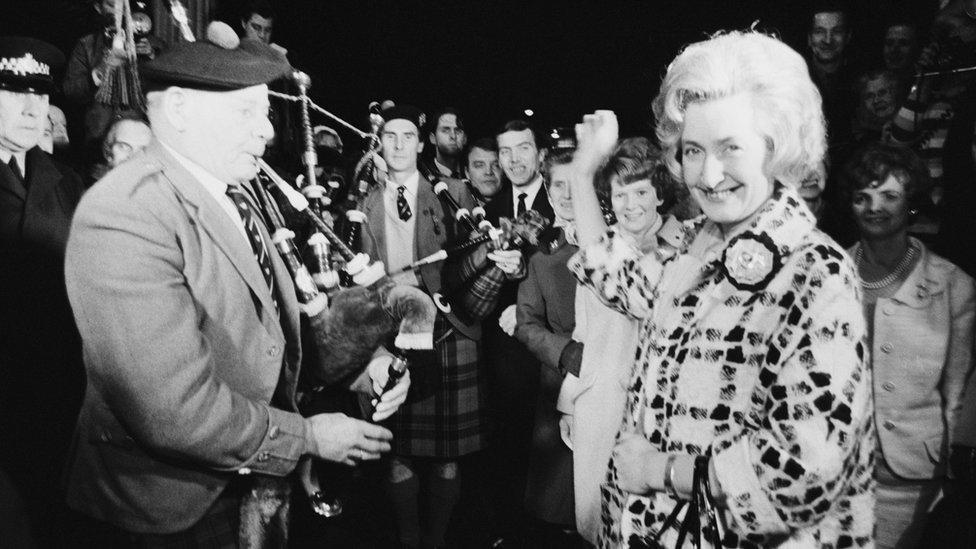
Arriving in London she told the press: "Stop the World, Scotland wants to get on".
Her election angered many, particularly Scottish Labour MPs who dubbed her the "Tartan Tory" and treated her with contempt.
"Some of the stories are quite horrific - of the bullying and, at times, physical manhandling that she had to put up with."
Having lost her Hamilton seat in the 1970 general election, Winnie Ewing once again defied the odds to unseat Gordon Campbell - then secretary of state for Scotland - in 1974.
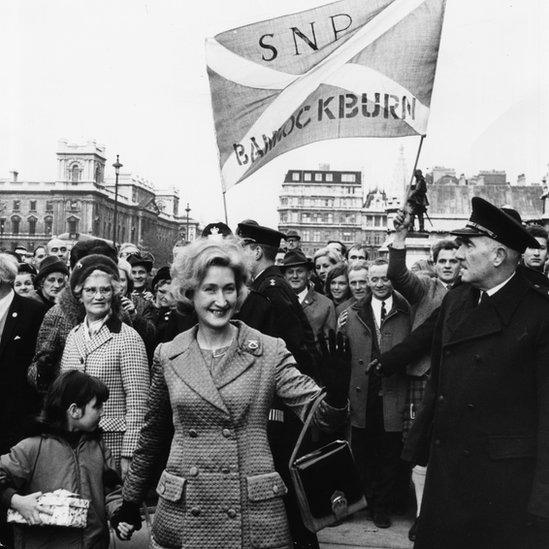
Winnie Ewing's 1967 victory was seen as an electoral breakthrough for the SNP
Like her political heroine, Ms Sturgeon has achieved a number of political firsts, not least by becoming Scotland's first female leader: "When I was growing up in politics there weren't very many women that I could look to, who had blazed a trail and Winnie was undoubtedly one of the few".
During the 1975 referendum on the common market, Winnie campaigned for a No vote, but she would ultimately change her mind on the European project, becoming one of the UK's first members of the new European Parliament.
Madame Ecosse
She would be nicknamed Madame Ecosse (Mrs Scotland) because of her fierce pursuit of Scottish interests. The first minister says her work helped to improve the view of what would become the EU in Scotland,
"I think she did help to fashion a Scottish view of Europe that perhaps was and is very different to the kind of view you encounter sometimes in other parts of the UK," Ms Sturgeon said. Scotland, unlike other parts of the UK, voted to 'Remain' in the 2016 EU referendum.
Winnie Ewing was elected as SNP President in 1987, just as a young Nicola Sturgeon was getting involved in politics.
The two would meet and, in time, Winnie would become a mentor. Ms Sturgeon said she gave her "hugely valuable advice" about public speaking and how to project her voice.
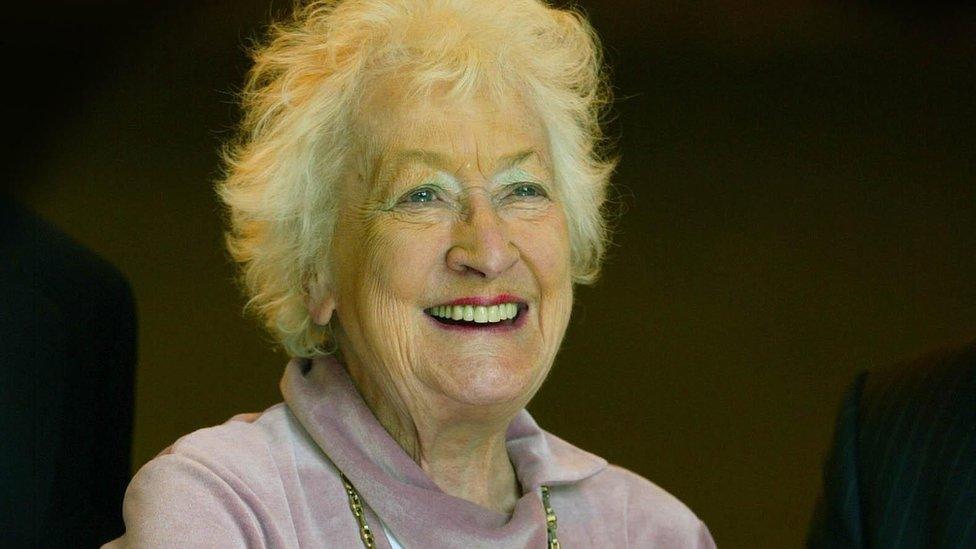
Winnie Ewing stood down as party president in 2005
"Winnie is, to this day, the best street campaigner that I've ever watched in action but I suppose the most important advice she ever gave me as a young woman is 'Stand your ground and believe in yourself'".
After Labour's landslide victory in 1997, devolution was back on the table. Winnie threw her considerable campaigning skills behind the vote for a new Scottish Parliament.
When it came to pass in 1999, as Mother of the House (the oldest member) she would open proceedings with these words, external: "The Scottish Parliament adjourned on the 25th day of March in the year 1707 is hereby reconvened."
Nicola Sturgeon remembers it vividly: "I was there in the chamber, and it was an incredibly emotional moment ... to see the woman who had served in the House of Commons as champion of a Scottish Parliament, served in the European Parliament, to come to a third parliament and declare it reconvened in the way she did".
When the independence referendum was lost in 2014, Winnie Ewing was phlegmatic, telling the media it was just part of a process and that independence would come.
It's a belief shared by the first minister, despite recent polling and the apparent lack of appetite for another vote anytime soon,
"I have no doubt Scotland will become independent, I hope it's within Winnie Ewing's lifetime and I'm sure Winnie Ewing hopes it is too, but there is absolutely no doubt, Winnie Ewing will be recorded in history as somebody who had a really significant impact on that journey."
Having lost her husband Stewart in 2003, Winnie began to withdraw from front line politics, stepping down as party president in 2005.
However, the first minister says her political legacy is still evident in the modern SNP, and perhaps also in the makings of a political dynasty with her son Fergus and daughter Annabelle both serving as ministers in the Scottish government she fought so hard to establish.
"She argued her cause and her corner at a time when it wasn't fashionable to do so, and she did it against all of the odds having experienced abuse and bullying along the way," said Ms Sturgeon.
"She progressed the cause of what she believed in, massively. A more vibrant, colourful dynamic, passionate, committed person, you would struggle to meet."
- Published23 March 2018
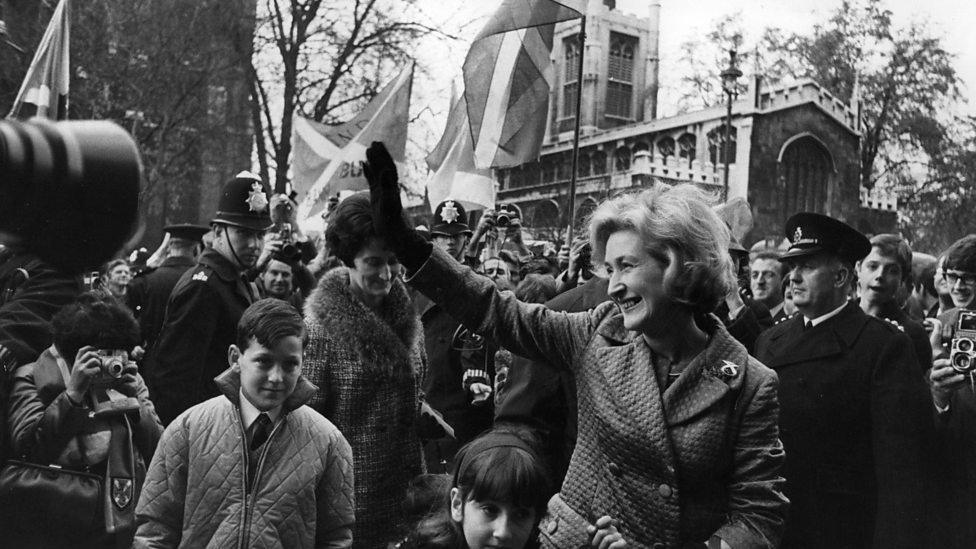
- Published23 February 2018
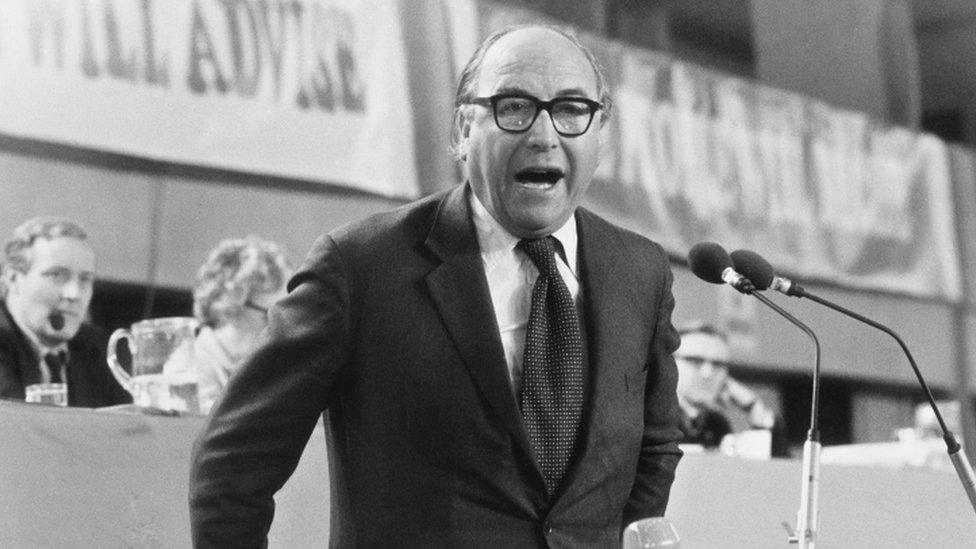
- Published2 February 2018
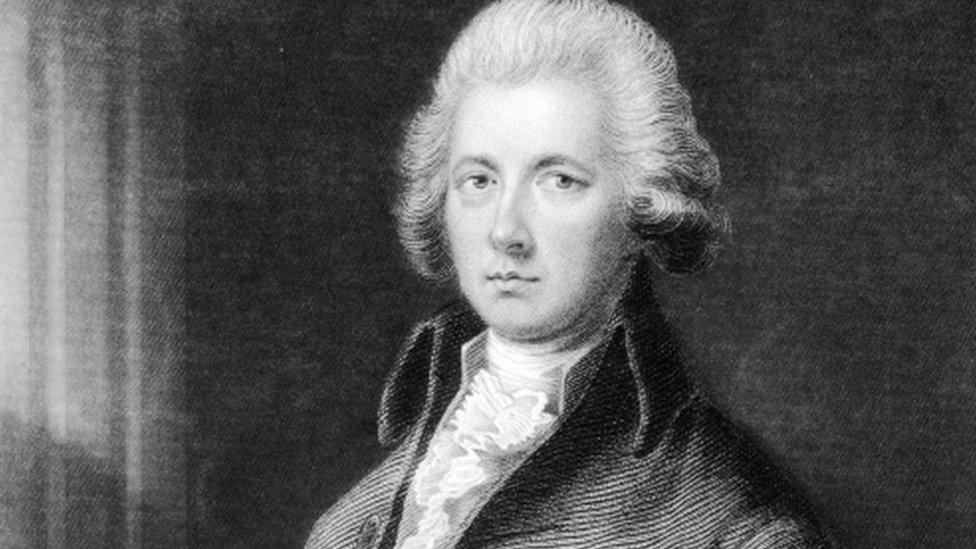
- Published26 January 2018
